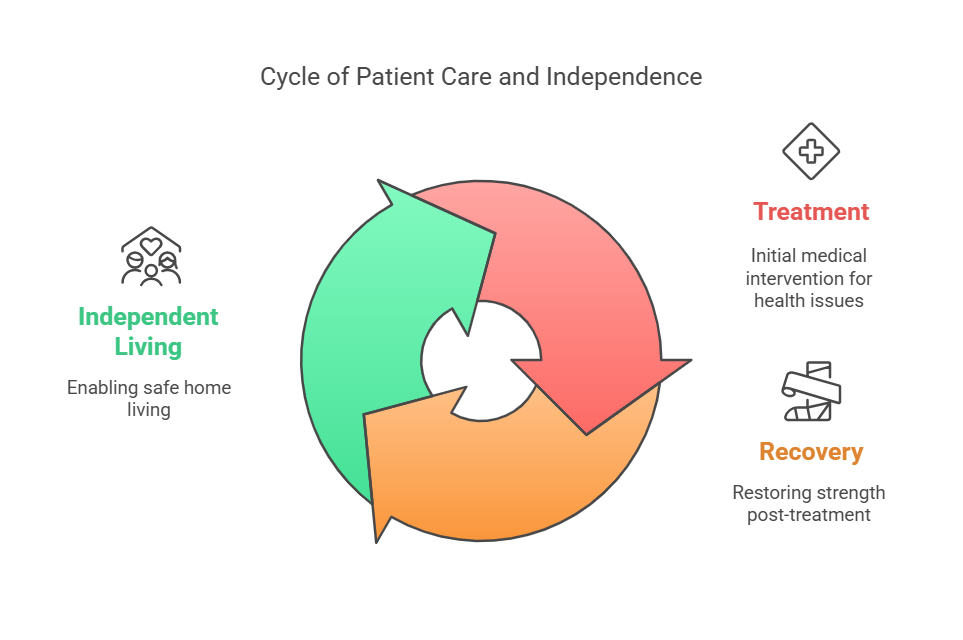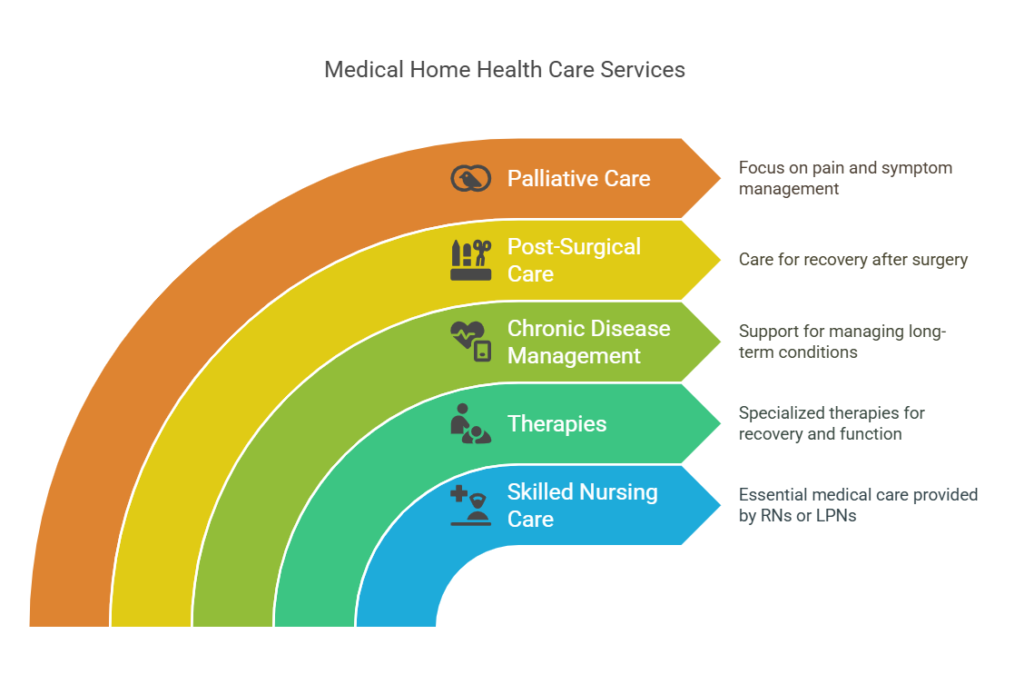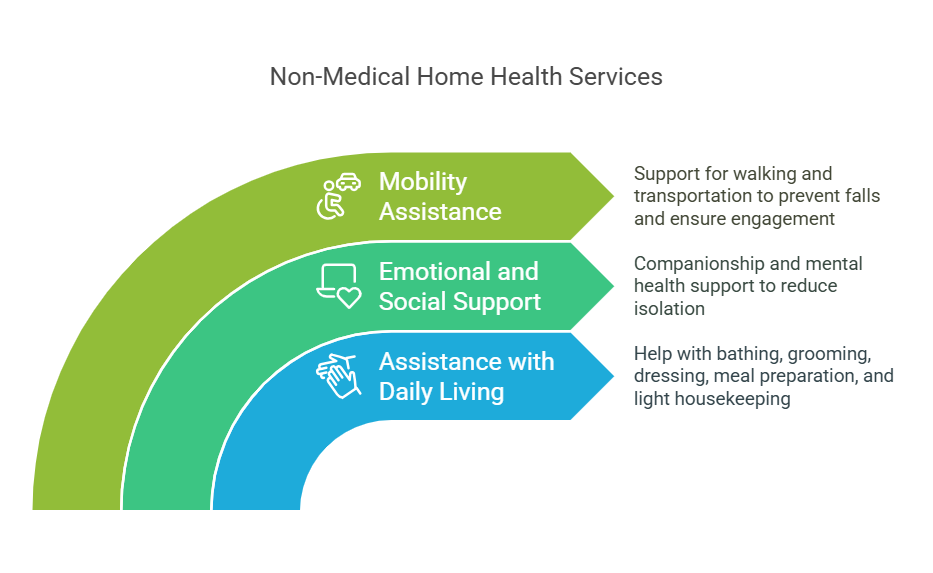What Are Home Health Care Services?
Imagine being able to receive the care you need without ever leaving the comfort of your home. That’s exactly what home health care services provide—personalized medical and supportive care delivered right where patients feel safest.
Home health care is an essential part of modern healthcare, offering a lifeline to individuals who need medical attention but prefer to avoid long hospital stays or nursing facilities. Whether it’s helping a senior manage their medications, assisting a post-surgical patient with recovery, or providing therapy for someone with a chronic illness, these services bridge the gap between hospital care and independent living.
Definition and Purpose of Home Health Care Services
Home health care is a specialized form of medical and supportive care provided to individuals in their own homes. It includes a wide range of services, from skilled nursing and therapy to personal care assistance, all tailored to meet the specific needs of each patient. Unlike traditional healthcare settings like hospitals or nursing homes, home health care allows individuals to receive professional care while staying in familiar surroundings.
The primary goals of home health care are straightforward:
- Treatment – Managing illnesses, injuries, and chronic conditions with professional medical care.
- Recovery – Assisting patients in regaining strength and independence after surgery or hospitalization.
- Independent Living – Providing support that enables individuals, particularly seniors or those with disabilities, to remain at home safely.

One of the biggest advantages of home health care is its cost-effectiveness compared to institutional care. Hospital stays and long-term facility care can be expensive, whereas home health services often provide the same level of care at a fraction of the cost. Plus, research shows that patients tend to have better outcomes at home—recovering faster, experiencing fewer complications, and maintaining a higher quality of life. The comfort and familiarity of home and personalized attention make home health care an increasingly preferred option for many individuals and families.
Types of Home Health Care Services Offered
Home health care services can be broadly categorized into two main types: medical services, which require skilled healthcare professionals, and non-medical services, which focus on daily support and companionship. Together, these services ensure that patients receive both the clinical care they need and the everyday assistance that makes life more manageable. Isaiah Home health Care provides these health care services to the public as well.
Medical Services
Medical home health care is typically provided under the supervision of a physician and delivered by licensed professionals such as nurses, physical therapists, and other specialists. These services include:
- Skilled Nursing Care – Registered nurses (RNs) or licensed practical nurses (LPNs) provide essential medical care, including:
- Administering medications and injections
- Wound care and dressing changes
- Monitoring vital signs (blood pressure, heart rate, oxygen levels)
- Managing chronic conditions like diabetes or heart disease
- Therapies – Patients recovering from injuries, surgeries, or medical conditions often require specialized therapy, including:
- Physical Therapy – Helps restore mobility, balance, and strength through guided exercises.
- Occupational Therapy – Focuses on improving daily function, such as dressing, eating, or using assistive devices.
- Speech Therapy – Aids individuals struggling with speech, swallowing, or cognitive impairments.
- Chronic Disease Management – Home health care teams support patients with long-term conditions such as:
- Diabetes – Blood sugar monitoring, medication management, and diet planning.
- Heart Failure – Monitoring fluid levels, oxygen therapy, and symptom control.
- Chronic Obstructive Pulmonary Disease (COPD) – Breathing exercises, oxygen support, and medication adherence.
- Post-Surgical Care – After surgery, patients may require:
- Pain management and medication administration.
- Wound care and infection prevention.
- Rehabilitation exercises to regain strength and function.
- Palliative Care – For individuals with serious or terminal illnesses, palliative care focuses on:
- Pain and symptom management.
- Emotional and psychological support.
- Coordinating care with hospice services when necessary.

Non-Medical Services
Beyond medical care, home health services also provide essential non-medical support, ensuring patients can maintain their independence and quality of life. These services include:
- Assistance with Daily Living – Home aides help with:
- Bathing, grooming, and dressing.
- Meal preparation and feeding.
- Light housekeeping and laundry.
- Emotional and Social Support – Many individuals, particularly seniors, benefit from:
- Companionship – Friendly conversations, reading together, or engaging in hobbies.
- Mental Health Support – Reducing isolation and ensuring emotional well-being.
- Mobility Assistance – For those with limited mobility, aides provide:
- Walking support to prevent falls.
- Transportation to medical appointments or social activities.
By combining medical expertise with everyday support, home health care provides a well-rounded solution for patients who wish to receive care in the comfort of their own homes.

Conclusion
Home health care is an essential service that allows individuals to receive medical and personal support in the comfort of their own homes. It offers a practical, cost-effective alternative to hospital stays and nursing facilities while promoting independence and a higher quality of life. Whether for elderly individuals needing daily assistance, patients recovering from surgery, or those managing chronic conditions, home health care ensures personalized care tailored to each person’s unique needs.
If you or a loved one could benefit from home health services, it’s worth exploring the available options. Many healthcare providers, insurance programs, and government agencies offer resources to help determine eligibility and find the right level of care.
For more information, consult trusted sources such as local healthcare providers, government health websites, and reputable home health agencies. Taking the time to research and ask questions can help ensure that you or your loved one receives the best possible care at home.
